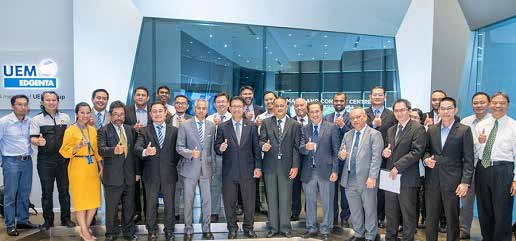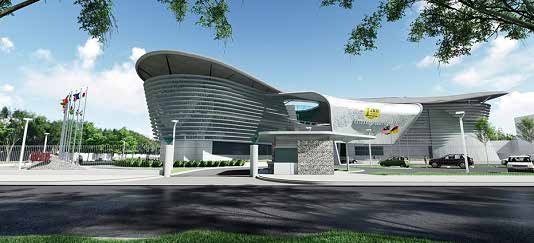The Public Works Department (JKR) Sarawak is establishing a new technical Research and Development Centre for development of new asphalt mixes for local conditions in Sarawak.
Asphalt is a composite material commonly used to surface roads, parking lots, airports, as well as the core of embankment dams where Asphalt mixtures have been used in pavement construction.
The JKR Sarawak’s Research and Development Centre will be known as ‘Centre of Excellence for Pavement Research’.
According to (former) Director of Public Works, Sarawak, Datu Ir. Hj. Zuraimi Bin Hj. Sabki, the new research centre situated at JKR Central Materials Laboratory in Tabuan Jaya, Kuching.
For the establishment of the Research and Development Centre, JKR Sarawak has signed a Memorandum of Understanding (MoU) with OPUS International (M) Berhad (OPUS Consultants), the Asset Consultancy arm of UEM Edgenta Berhad (“UEM Edgenta”).

Under the MoU, both parties will collaborate on the research and development of new asphalt mixes for local conditions in Sarawak, product development and commercialisation, field trials and performance evaluation, technology and knowledge transfer, as well as facilitate training.
It will mainly focus on the development of new asphalt materials, such as Ultraflex (thin asphalt surfacing), Duraflex (Stone Mastic Asphalt), Hi-Binder Asphalt Wearing Course, ULTIFLEX, TUFFPAVE, DURAFALT (UK), ULM-Ultra (France), Fibretex (Germany), Super Fibre Mix (Germany) as well as explore the development of Recycled Asphalt Pavement (“RAP”) asphalt mixes using recycled materials such as plastics and or by-products such as milling waste.
The Pavement Research Centre (PRC), the research division of OPUS Consultants will provide technical expertise and capabilities in developing customised pavement solutions which are more durable and able to withstand Sarawak’s climate and terrain conditions.
“We will extend our capabilities in developing customised pavement solutions which are more durable and able to withstand Sarawak’s climate and terrain conditions,”
“Emphasis will be on exploring solutions which incorporate locally sourced material and recyclable options to complement our shared values in promoting sustainability to support the numerous infrastructure development projects which JKR Sarawak is currently and will be undertaking in the future,” said chief operating officer of OPUS Consultants, Dr Tony Chan.
This premise will eventually house not only the research centre with training facilities, but JKR Sarawak’s own ISO 17025 accredited Central Materials Laboratory will also be operating from there.

The collaboration is in line with JKR Sarawak’s efforts to be self-sustainable and one of the identified studies is to explore the viability of utilising locally available aggregates from selected quarries identified by JKR Sarawak for asphalt mix production and ultimately avoid the use of imported granite aggregates.
“The construction of new JKR Sarawak Research Centre is progressing well. Meantime, the centre, at its present premise, has been involved in various research collaboration on geotechnical, structure, electrical, concrete materials and pavement,” said Datu Ir Hj Zuraimi.
He added that the centre will also be the main focal point for all research and development for road conditions in Sarawak.
“I am proud to say that our JKR Sarawak Research Centre has always been very active and productive in R&D agenda. Among which, we have produced our own Design Guideline for Low Volume Rural Road, which is being widely used now in the industry,” he said.
Apart from that, JKR Sarawak has previously worked with UNIMAS for the innovation of concrete cube tracking system called I-Concrete, for quality control purpose.
“We also are relentless in studying and trying innovative approach in tackling road construction in difficult soil condition,” added Datu Ir. Hj. Zuraimi.





